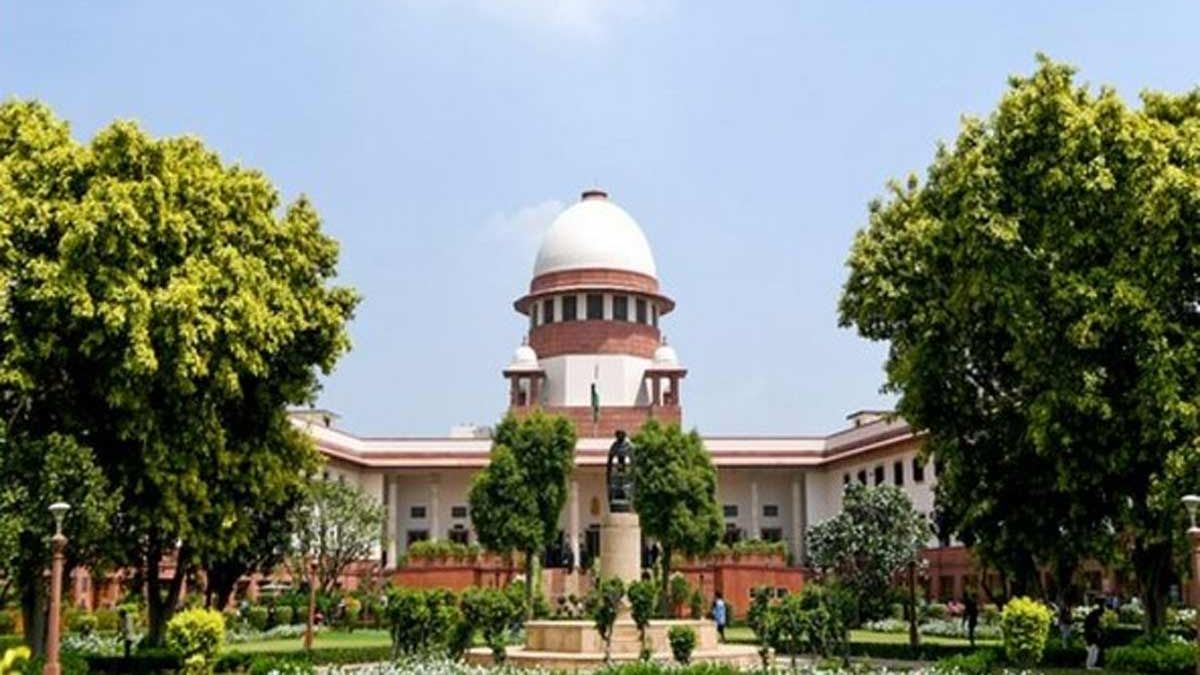Bihar voter list: Supreme Court questions new valid documents rules

The Supreme Court on Thursday refused to halt the Special Intensive Revision (SIR) of electoral rolls underway in Bihar, but it did raise eyebrows at the timing, coming just months before the state Assembly elections.
A bench of Justices Sudhanshu Dhulia and Joymalya Bagchi, while hearing multiple petitions against the Election Commission of India’s (ECI) decision, made it clear that the matter needs closer scrutiny. “We have no reason to doubt them (the ECI). They are saying ‘let’s test our credentials’. The matter deserves a hearing,” the bench observed, scheduling the next hearing for July 28. Until then, the draft rolls will not be published.
At the heart of the controversy is the ECI’s list of 11 documents that people can show during the verification drive, a list that surprisingly left out Aadhaar and voter ID cards.
The court noted that the list is not set in stone and urged the poll panel to include Aadhaar, EPIC (voter ID), and ration cards too. “In our opinion, it would be in the interest of justice if Aadhaar card, EPIC card and ration card are accepted as valid documents,” the bench said. However, the final call rests with the Election Commission, which must give clear reasons if it chooses not to accept these documents.
The court has directed the ECI to file its detailed response by July 21.
During the day-long hearing, Senior advocate Rakesh Dwivedi, appearing for the Election Commission of India, told the bench that, “It is a participative exercise. We have taken the burden on ourselves so that no voter is left out. We have completed 60 percent of the work already.”
The Court also opined that Aadhaar should be included within the list of documents permissible as identity proof.
At this Justice Bagchi said, "We feel since Aadhar has been taken as a solid proof for inclusion in electoral rolls as per Section 23, it should be included. Your (ECI's) enumeration list is all related to identity - matriculation certificate.”
"This entire exercise is to establish identity only," Justice Dhulia added.
"We are looking at entitlement from all aspects," responded Dwivedi on behalf of the ECI.
At this, Justice Dhulia said, “Suppose I want a caste certificate. I show my Aadhaar card. I get a caste certificate based on that. So that is a document accepted, but not Aadhaar. So it is one of the basic document which is considered by so many, (but is not considered by you.”
"I am injuncted to use Aadhaar (for proving) citizenship or domicile proof as per the the Act," Dwivedi said.
On the other hand, Senior advocate Gopal Sankaranarayanan, appearing for one of the petitioners, contended that the burden to prove citizenship on voters not present in the 2003 voters list is arbitrary and said, “ They say, if you are in 2003 rolls, you can avoid parents documents. Else others will have to prove citizenship. They have made exemptions for the arts, sports people, and that is completely arbitrary and discriminatory. Revision procedure is laid down in Representation of People Act.”
Senior Advocate Kapil Sibal, appearing for the petitioners, said that the ECI does not have the power to carry out the exercise to determine who is a citizen and who is not.
"ECI has no power in this. Who are they to say we are citizens or not? They are people who are not registered as citizens and there are who are registered and can be deleted only in terms of Section 3. So the entire exercise is shocking. They say if you don't fill a form you cannot vote,” Sibal argued.
Senior Advocate Abhishek Manu Singhvi said, “Disenfranchisement of one voter impacts democracy and the basic structure. So we are saying all 10 elections till now was based on wrong electoral data.
The petitioners arguing before the Supreme Court have said that the new requirements for voter verification are far too burdensome and could end up depriving thousands of genuine voters of their right to vote especially in a state like Bihar, where poverty, illiteracy, and poor access to documents are everyday challenges.
The Association for Democratic Reforms (ADR), one of the first to approach the court, told the bench that the Election Commission’s move goes against the very spirit of the Constitution, violating fundamental rights under Articles 14, 19, 21, 325, and 326, as well as provisions of the Representation of the People Act, 1950.
The petition argues that these new rules force citizens to prove what should already be presumed their right to vote by producing fresh documents, unfairly shifting the burden of proof from the State to the individual. It also flagged the irony of leaving out commonly available ID proofs like Aadhaar and ration cards, which would hit the poor and marginalised voters the hardest, particularly in rural Bihar where official papers are often hard to come by.
Under the Special Intensive Revision (SIR) guidelines, anyone not listed on the 2003 voter roll must now show documents to prove their citizenship. For voters born after December 2004, the rules go even further they must submit not just their own documents but also paperwork for both parents. If a parent happens to be a foreign national, the order demands proof like passports and visas from the time of the child’s birth.
India